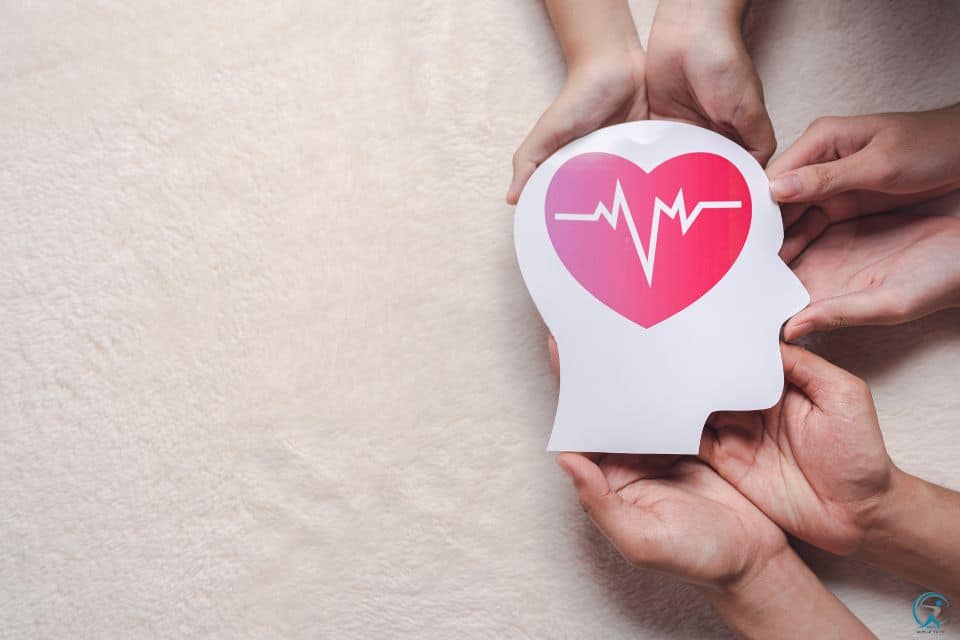If you are like me, you need those 7-8 hours of sleep every night. But if you don’t get enough sleep, you may find yourself waking up tired and groggy. It is essential to get at least 7-8 hours of restful sleep each night because that is how our bodies repair themselves.
Sleep is one of life’s most essential needs. We spend roughly a third of each year asleep – yet many of us struggle to achieve deep, uninterrupted slumber. This lack of sleep leads to serious physical and psychological problems.
Sleep deprivation can cause several health problems, including weight gain, depression, anxiety, heart disease, diabetes, high blood pressure, stroke, Alzheimer’s disease, cancer, memory loss, reduced immunity, increased risk for accidents, impaired decision making, decreased productivity, and more. Sleep deprivation also affects your moods, relationships with others, job performance, concentration, energy levels, and even physical appearance.
Best Tips to Fall Asleep

The best way to fall asleep is to relax and close your eyes. If you have trouble falling asleep, try listening to soothing music or taking a hot bath. Avoid watching TV, reading, or using your phone.
Try not to eat anything after 8 pm so that the body will be ready to go into sleep mode when it gets dark out. Try drinking water before bedtime as well. Also, avoid caffeine in the evening as this keeps us awake later on.
It is recommended that we should have around 6 hours of light exposure during the daytime. This helps regulate the circadian rhythm, which controls our sleeping patterns.
7 Ways To Get More Restful Sleep:
Have A Regular Bed Time
Set an alarm clock one hour earlier than usual. When you wake up, take 10 minutes to stretch and do some deep breathing exercises. Then drink plenty of warm milk or herbal tea without sugar. Do these steps daily until you feel sleepy.
Exercise Daily
Exercising regularly improves circulation and reduces stress hormones. In addition, exercise increases endorphins production, which makes you happy.
Eat Right
Eating right before going to bed would help keep hunger pangs away. Choose foods rich in protein such as chicken breast, fish, eggs, beans, nuts, seeds, tofu, etc. These proteins release serotonin which promotes relaxation.
Meditate Before Going To Bed
Meditation has been shown to reduce stress, improve focus, increase creativity, enhance self-confidence, and boost the immune system. The practice involves focusing attention on something peaceful while letting thoughts flow naturally through the mind.
Read Something Relaxing Before Sleeping
Reading books about nature, animals, history, science, philosophy, poetry, fiction, and nonfiction promotes positive emotions. Books that contain illustrations and pictures are better than text-only ones.
Sleep schedules
The best sleep schedule for adults is between 7 am and 9 pm. If you wake up at night, then try to go back to bed after 10 minutes. If you wake up early, then try to go to bed earlier. Don’t stay awake too late because it will make it harder to fall asleep later on. Also, avoid sleeping during meals since this can interrupt digestion.
Exercise regularly
Regular exercise helps regulate hormones that control our bodies’ natural rhythms. It also improves blood flow throughout the body, allowing more oxygenated blood to reach organs and tissues. Exercise increases serotonin, dopamine, norepinephrine, endorphins, and oxytocin. This makes us happy and relaxed. The combination of these positive feelings along with physical activity promotes better sleep.
Keep track of what time you go to bed and wake up each day. Then adjust accordingly based on your needs.
Get plenty of sunlight exposure
Sunlight has been proven to help promote healthy sleep cycles. Exposure to light stimulates the release of serotonin, one of the brain chemical messengers responsible for regulating circadian rhythmicity. Serotonin regulates moods, energy levels, alertness, memory retention, sexual desire, and many other functions. When exposed to adequate daylight, the human body naturally begins producing less cortisol, another important neurotransmitter.
Daytime naps
A daytime nap is usually recommended for children who are sick, tired or stressed out. However, adults also benefit from taking a short nap during the day. Napping helps reduce stress, improves memory, and increases energy levels.
Taking a midday nap may give you extra time to get things done at work. It’s essential to know how long you need to rest. Start by lying down for 5–10 minutes. Afterward, if you still feel energized, lie back down for another 15–20 minutes. Repeat this process twice. Don’t worry if you don’t feel refreshed immediately; instead, wait 30 minutes between each session.
Go For An Early Night
Getting enough sleep every night is crucial to maintaining good health. Studies show that people who slept less than six hours per night were three times more likely to die prematurely than those who got eight hours of shut-eye. On average, most Americans spend seven hours getting ready for bed. That means they’re spending almost half their lives in bed! Make sure you get adequate sleep every single night.
Take Deep Breaths
Taking slow breaths throughout the day calms the nervous system and lowers cortisol levels. Slow breathing decreases oxygen consumption and raises carbon dioxide output. Carbon dioxide binds to hemoglobin molecules in red blood cells and causes them to expand. Expanded blood vessels dilate, allowing more blood to enter the brain and other parts of the body.
Create An Environment
That Promotes Peacefulness – Make sure there isn’t too much noise in your bedroom. Keep clutter minimal. Use soft lighting instead of bright lights. Turn off mobile phones and computers. Light colors such as yellow, orange, green, blue, purple, pink, brown, gray, black, white, silver, gold, copper, bronze, brass, pearl, ivory, wood, jade, marble, granite, terra cotta, ceramic, glass, crystal, agates, quartz, china, porcelain, pottery, and clay work great.
Put soothing scents like lavender, vanilla, sandalwood, rosemary, eucalyptus, lemongrass, mint, cinnamon, ginger, peppermint, basil, pine trees, citrus fruits, grapes, strawberries, apples, peaches, oranges, bananas, honeydew melons, lemons, limes, grapefruit, tangerines, plums, apricots, cherries, nectarines, kiwis, figs, dates, coconuts, papayas, mangoes, avocado, passion fruit, guavas, persimmons, and lychee can also make for good smells.
How Much Should I Sleep?

According to Harvard Medical School, there is no set amount of sleep required for everyone. Some individuals require fewer hours of sleep, while others need longer periods of slumber. Here are some guidelines suggested by experts:
- Adults aged 18 years old and above – 9 hours of uninterrupted sleep.
- Children ages 4–18 years old – 12 hours of continuous sleep.
- Infants under age 1 year – 16 hours of uninterrupted sleep. This recommendation applies when infants have not yet started sleeping through the night.
- Babies 0–12 months old – 20 hours of uninterrupted sleep. If your baby sleeps well throughout the first few weeks after birth, they can be allowed to stay awake for shorter intervals later on.
- Pregnant women – 13 hours of uninterrupted sleep. According to research published in the Journal of Pediatrics, pregnant mothers should avoid falling asleep with their stomach touching the mattress because it could lead to premature delivery.
Sleep Disorders: Common reasons
Sleep disorders include insomnia, narcolepsy, obstructive sleep apnea, restless leg syndrome, and others. Insomnia is defined as difficulty falling asleep or staying asleep. Sudden episodes of excessive daytime sleepiness characterize narcolepsy. Obstructive sleep apnea is characterized by pauses in breathing while sleeping. Restless leg syndrome is characterized by an irresistible urge to move one’s legs.
Insomnia: Causes and Treatment Options

Causes of insomnia are many and varied. They range from simple physical causes, psychological ones, social/environmental causes, and even physiological causes. While some people have trouble sleeping no matter what they eat or drink, others experience problems when their diets change. That said, most cases of insomnia will respond well to dietary changes. Here are some common reasons why we don’t get good rest:
Stress
We all know that stress affects our ability to relax and unwind. It makes it harder to sleep because it keeps us awake. People who suffer from anxiety often struggle with this problem.
When we feel stressed out or anxious about something in life, it is harder to fall asleep. We often think that stress will help us deal with things but instead, it keeps us awake all night long! If you have trouble sleeping, try taking deep breaths before bedtime until you start feeling calmer. Try listening to soothing music too.
Poor Sleep Hygiene
This includes not having regular sleep habits, being too tired to fall asleep quickly, taking naps during the day, drinking caffeine right before bedtime, smoking cigarettes, snacking on high-calorie snacks shortly before bedtime, etc.
Alcohol Consumption
Many studies suggest that alcohol consumption has a negative effect on sleep. Alcohol tends to make people feel more alert than sleepy. It interferes with REM sleep cycles and disturbs deep sleep stages.
Too much caffeine
Caffeine has been shown to keep people awake longer than they would otherwise be able to stay awake. This includes coffee, tea, sodas/sports drinks, chocolate, etc. Also, avoid drinking alcohol when trying to sleep as this tends to make one wake up later.
Not getting enough exercise.
Exercise helps promote better sleep by increasing serotonin production, which promotes relaxation. The best time to do cardio exercises is after dinner so that you won’t be hungry during
Eating late
Eating large meals close to bedtime disrupts standard digestion patterns causing indigestion and gas. Avoid eating heavy foods such as pasta, pizza, bread, potatoes, rice, beans, nuts, seeds, dairy products, meat, eggs, fried food, sweets, and sugary beverages within two hours before going to bed. These types of foods tend to sit in the stomach and create discomfort throughout the night.
Watching TV
A study published in the Journal of Clinical Endocrinology & Metabolism found that watching television just before bedtime increases cortisol levels, disrupting the body’s natural circadian rhythm. Cortisol is an “alert” hormone produced naturally by the adrenal glands in response to stressful situations. In addition, light from screens suppresses melatonin production, another hormone responsible for promoting sleepiness.
Using electronic devices
Use these only 30 minutes before bedtime. Studies show that using electronics just before bedtime reduces the quality of sleep. Electronic devices emit blue light, which tricks the brain into thinking it’s daytime. Blue light inhibits the release of hormones associated with falling asleep.
Medications
Certain prescription drugs, over-the-counter cold medicines, antihistamines, decongestants, and antidepressants affect sleep patterns. These substances tend to cause drowsiness, fatigue, decreased appetite, and weight loss. In addition, they can lead to addiction.
Medical Conditions
Several medical conditions can disrupt standard sleep patterns. Examples include diabetes, thyroid disease, heart disease, cancer, arthritis, asthma, multiple sclerosis, migraines, depression, fibromyalgia, Parkinson’s Disease, Alzheimer’s disease, stroke, epilepsy, urinary tract infections, obesity, hypothyroidism, hyperthyroidism, Cushing’s Syndrome, alcoholism, drug abuse, and so forth.
Environmental Factors
The environment plays a significant role in whether we get enough sleep. Noise levels, temperature fluctuations, humidity, bright lights, and electromagnetic fields can all disturb sleep.
Mental Health Issues
Depression, bipolar disorder, schizophrenia, obsessive-compulsive disorder, post-traumatic stress disorder, attention deficit hyperactivity disorder, autism spectrum disorder, eating disorders, substance use disorders, and personality disorders are mental health concerns contributing to poor sleep.
Sleeping pills
Don’t take any medication unless prescribed by your doctor. Some medicines can interfere with the way the body produces certain chemicals necessary for proper sleep. Other side effects include drowsiness, dry mouth, nausea, constipation, headaches, dizziness, confusion, blurred vision, and impotence. If none of those tips work, there may be other factors like medical conditions, allergies, chronic pain, restless legs syndrome, pregnancy, menopause, or insomnia caused by emotional issues. There could also be environmental factors involved. For example, if you live near noisy traffic or construction sites, you might find yourself waking up frequently due to noise pollution. Or perhaps you’re living in a home where there isn’t sufficient lighting or air circulation. Whatever the case, talk to your physician about how to improve your situation. Good luck!
Conclusion
Sleeplessness is not always an indication of something wrong; sometimes, it’s simply because our bodies need more rest than usual. It’s possible to fall asleep without dreaming, but most people have vivid dreams when sleeping well.
Treatment options vary depending upon the underlying cause. However, lifestyle adjustments usually do the trick. Exercise regularly, eat healthy foods, avoid caffeine after noon, cut down on alcohol, don’t smoke cigarettes, drink plenty of water, keep clutter out of sight, reduce exposure to artificial light during evening hours, try meditation, yoga, tai chi, qi gong, or guided imagery, learn relaxation techniques, practice breathing exercises, and consider taking melatonin supplements.
As a veteran fitness technology innovator and the founder of GearUpToFit.com, Alex Papaioannou stands at the intersection of health science and artificial intelligence. With over a decade of specialized experience in digital wellness solutions, he’s transforming how people approach their fitness journey through data-driven methodologies.